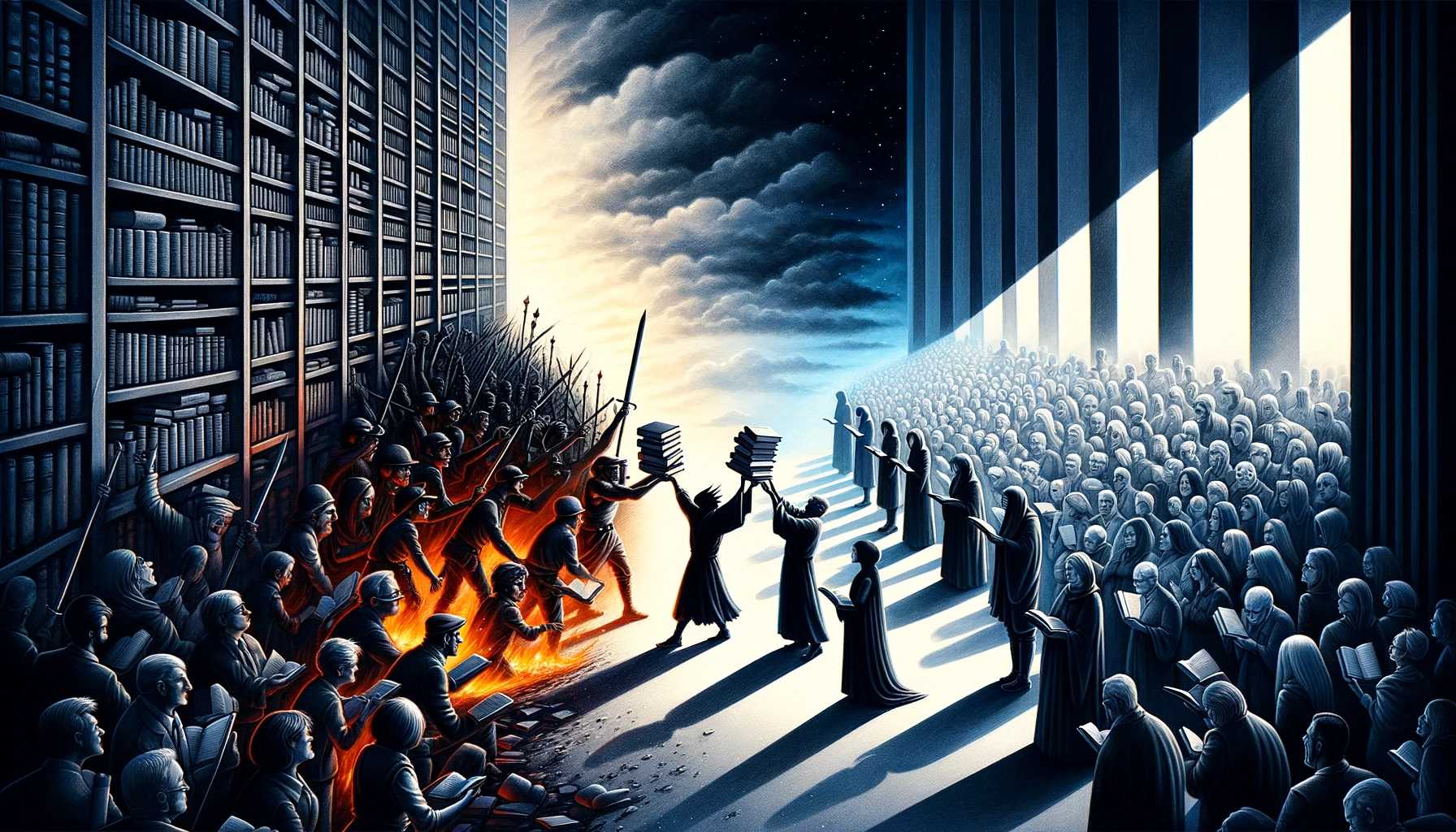The Censorship of Books Throughout History: A Tale of Suppression and Resistance
Books have long served as vessels of knowledge, enlightenment, and dissent, challenging societal norms, sparking controversy, and shaping the course of history. However, throughout history, governments, religious institutions, and other authorities have sought to control the flow of information by censoring books deemed subversive, heretical, or dangerous. From ancient times to the present day, the censorship of books has been a contentious issue, raising questions about freedom of expression, intellectual freedom, and the power dynamics at play in society.
Ancient Censorship: The practice of censoring books dates back to ancient civilizations, where rulers and religious leaders often sought to control the dissemination of information to maintain power and authority. In ancient China, for example, imperial censors were tasked with monitoring literature for content deemed offensive or seditious, leading to the suppression of dissenting voices and ideas. Similarly, in ancient Rome, the government had the authority to ban books deemed morally or politically objectionable, leading to the censorship of works by philosophers, playwrights, and historians.
Medieval Censorship: During the Middle Ages, censorship was often enforced by the Catholic Church, which sought to suppress works deemed heretical or contrary to church doctrine. The Inquisition, established by the Catholic Church in the 12th century, targeted books and authors deemed to be promoting ideas considered dangerous or unorthodox. The printing press, invented in the 15th century, posed a new challenge to authorities, as it facilitated the mass production and dissemination of books, making censorship more difficult to enforce.
Enlightenment and Resistance: The Enlightenment period saw a resurgence of censorship as governments and religious institutions sought to suppress the spread of revolutionary ideas and scientific discoveries. Despite censorship efforts, Enlightenment thinkers such as Voltaire, Rousseau, and Montesquieu continued to challenge authority and advocate for freedom of expression and intellectual freedom. Their works, often published anonymously or under pseudonyms, circulated clandestinely, inspiring generations of readers and laying the groundwork for democratic principles and human rights.
Modern Censorship: In the modern era, censorship of books has persisted in various forms, often under the guise of protecting public morality, national security, or social stability. In totalitarian regimes such as Nazi Germany and Stalinist Russia, censorship was used as a tool of propaganda and repression, with books deemed subversive or "degenerate" being banned, burned, or confiscated. Similarly, during the Cold War, books promoting communist or socialist ideologies were censored in Western countries, while anti-communist literature was censored in communist countries.
Censorship in Specific Countries: The censorship of books remains a contentious issue in many countries around the world, where governments seek to control the flow of information and suppress dissenting voices. In countries such as China, Iran, and North Korea, censorship is enforced through state-run media, internet censorship, and strict regulations on publishing and distribution. Writers and journalists who dare to challenge the government face imprisonment, harassment, or even death. Despite censorship efforts, underground movements and dissident voices continue to resist and defy censorship, often at great personal risk.
Resistance and Resilience: Despite the challenges posed by censorship, writers, publishers, and activists have continued to resist and challenge censorship, advocating for freedom of expression and the right to access information. Organizations such as PEN International and the American Library Association have been at the forefront of defending intellectual freedom and combating censorship worldwide. Writers and publishers have also found creative ways to circumvent censorship, such as publishing works anonymously, using pseudonyms, or distributing books through underground networks.
The Role of Technology: The advent of the internet and digital publishing has transformed the landscape of censorship, making it easier for governments and authorities to monitor and control the flow of information. Internet censorship, surveillance, and online harassment pose new challenges to freedom of expression and intellectual freedom in the digital age. However, technology has also provided new opportunities for bypassing censorship, with tools such as virtual private networks (VPNs) and encrypted messaging apps enabling users to access and share banned books and information securely.
In conclusion, the censorship of books throughout history has been a recurring phenomenon, driven by the desire to control information, suppress dissent, and maintain power and authority. Despite censorship efforts, writers, publishers, and activists have continued to resist and challenge censorship, advocating for freedom of expression, intellectual freedom, and the right to access information. As we navigate the complexities of censorship in the digital age, it is essential to remain vigilant and uphold the principles of democracy, human rights, and freedom of expression for future generations.






